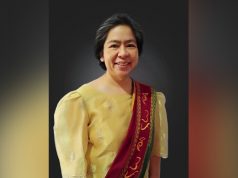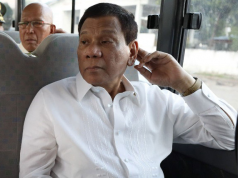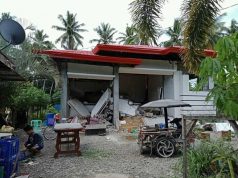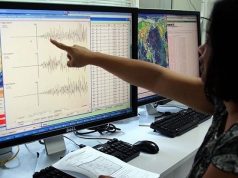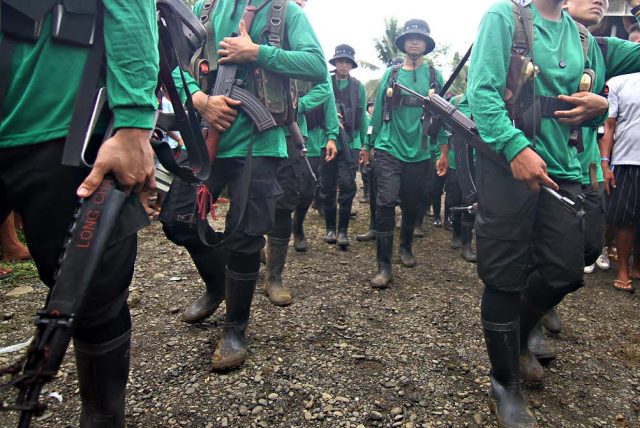
(UPDATED) MANILA, Philippines — President Rodrigo Duterte declared a ceasefire with the CPP-NPA-NDF (Communist Party of the Philippines/New People’s Army/National Democratic Front) from December 24, 2017 to January 2, 2018, presidential spokesperson Harry Roque, Duterte announced Tuesday night.
“This unilateral ceasefire would lessen the apprehension of the public this Christmas season. We expect that the CPP-NPA-NDFP would do a similar gesture of goodwill,” Roque said in a press release.
“Christmas holds a special place in the hearts of our countrymen. In the observance of this occasion, we hope that all Filipinos would stand together as one nation and aspire for peace in our beloved Philippines,” he added.
Duterte earlier branded the CPP and the NPA as terrorist organizations, and cited the NPA’s attacks in Mindanao as one of the reasons to extend martial law in the region. He terminated peace talks with them in November.
‘Welcome with abundance of caution’
National Union of Peoples’ Lawyers president Edre Olalia on Wednesday said that as a “human rights lawyer keenly interested in a just and lasting peace,” his “quick personal take is we can welcome with abundance of caution the unilateral declaration of ceasefire by the Philippine government.”
“This declaration is not totally unexpected though. But it is especially curious because it comes on the heels of the rebel movement’s standing openness to declare its own even before the government has apparently stolen the thunder to make it appear that the latter is magnanimous despite incessant vicious and outrageous words against the former,” said Olalia in a statement.
“While the declaration seems incongruous amidst the unilateral termination of the peace negotiations, the terrorist tagging and demonization, the extension of martial law in Mindanao and its possible nationwide imposition, and the threatened crackdown on dissenters, it may, still and all, be considered a positive move for the sake of the people and the protection of their rights in this season of hope.”
“Yet in the context of present realities, and the historical experience of disingenuous violations reportedly committed by Philippine government forces despite previous ceasefires, as well as their open contempt for basic norms of international humanitarian law, we should be wary that this is not but another ruse to deflect its proven refusal and inability to genuinely address and resolve the roots of the prolonged armed conflict or is just another populist gimmick,” he added.




